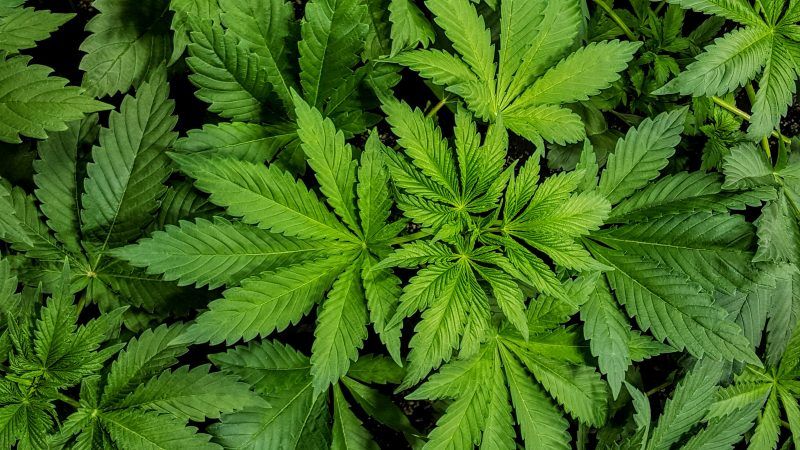New Jersey Voters Overwhelmingly Approve Marijuana Legalization
The constitutional amendment charges state legislators and regulators with writing specific rules.

Voters in New Jersey, where the state legislature allowed medical use of marijuana in 2010, today said the state should extend its tolerance to recreational use. With 58 percent of precincts reporting, more than two-thirds of voters favored Public Question 1, which amends the state constitution to allow the production, distribution, sale, and consumption of cannabis, but only after state legislators and regulators write specific rules.
New Jersey, the 11th most populous state, joins 11 other states that have legalized recreational use since 2012. It is the first mid-Atlantic state to legalize marijuana and the third on the East Coast to do so, along with Maine and Massachusetts.
New Jersey's constitutional amendment, which takes effect on January 1, charges the state legislature and the New Jersey Cannabis Regulatory Commission, which also oversees the medical marijuana industry, with writing rules for growing, processing, selling, and possessing cannabis for recreational use. Legal consumption will be limited to adults 21 or older. Retail sales will be taxed at the standard state rate of 6.625 percent, although the legislature could allow municipalities to impose additional levies of no more than 2 percent.
Gov. Phil Murphy and New Jersey Senate President Stephen Sweeney, both Democrats, supported Question 1, which requires state legislators to approve rules they had struggled to pass on their own. In four polls conducted from mid-April to mid-October, Question 1 was favored by 64 percent of voters on average, similar to the election outcome and the results of national polls on marijuana legalization. Supporters raised about 65 times as much money as opponents; top donors included the American Civil Liberties Union of New Jersey, Scotts Miracle Gro, Weedmaps, and Drug Policy Action, the Drug Policy Alliance's political arm.
Legalization still depends on action by legislators and regulators, and the amendment does not impose any deadlines. It is therefore not clear when permissible possession will be defined, or when licensed sales might begin. If the legislature passes a bill right away, a cannabis lawyer told The Philadelphia Inquirer, "you could see sales in the third or fourth quarter of 2021," although there are "a lot of ifs and buts."
In Maine, where voters approved recreational marijuana in 2016, legislators did not get around to authorizing commercial distribution until this year. Licensed sales began on October 9. In Massachusetts, where a legalization initiative passed the same year, licensed sales did not begin until November 2018.
"It doesn't need to take that long in New Jersey," Chris Goldstein, a spokesman for the South Jersey chapter of the National Organization for the Reform of Marijuana Laws (NORML), told the Inquirer. He noted that legislators have already written a bill that could be the basis for implementing Question 1. That bill would allow medical marijuana dispensaries to start serving recreational consumers, meaning sales could begin relatively soon. Then again, the entire state has only a dozen or so dispensaries, and nearly 70 municipalities have preemptively banned marijuana retailers.
Since Question 1 does not define the limits of marijuana possession, except to exclude anyone younger than 21, cannabis consumers will still be subject to arrest until the legislature acts. Under current New Jersey law, possessing up to 50 grams (about 1.8 ounces) of marijuana is a "disorderly person" offense punishable by a maximum fine of $1,000 and up to six months in jail. Possessing more than that amount is a fourth-degree crime, punishable by a maximum fine of $25,000 and up to 18 months of incarceration.
"When I became governor, we had the widest white–nonwhite gap of persons incarcerated, believe it or not, of any American state," Gov. Murphy told Yahoo! Finance last week, explaining his support for marijuana legalization. "The biggest reason was low-end drug offenses. So I get there first and foremost because of social justice."


Show Comments (160)